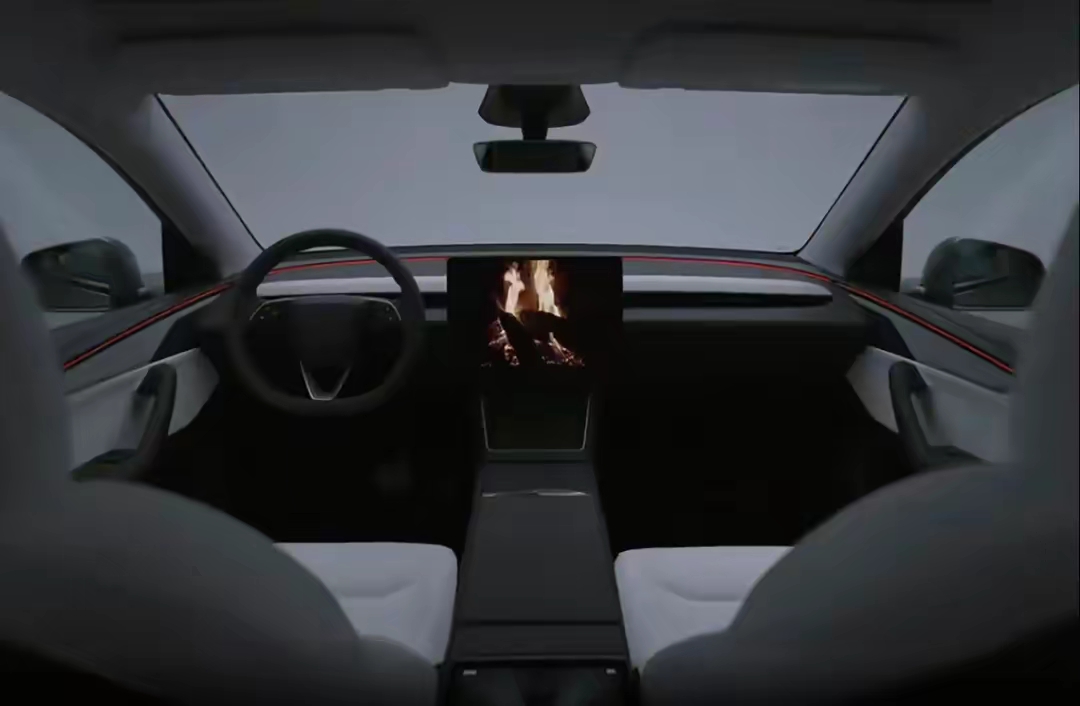
In the first quarter of 2025, electric vehicle industry giant Tesla delivered a disappointing result with a global delivery volume of only 336000 vehicles, a month on month drop of 160000 vehicles, setting a record low in two and a half years and far below market expectations of 390000 vehicles. Tesla, which once dominated the field of new energy vehicles, is now deeply mired in sales difficulties. As the leader, Musk urgently needs to find a way to break through.
Tesla's plummeting sales are closely related to its CEO Elon Musk's deep involvement in global politics. Musk, as the core driving force behind Trump's return to the White House, has sparked widespread controversy over the federal government's "layoffs and cost cutting" policy. And his strong support for the far right Alternative for Germany (AfD) party directly ignited the anger of European consumers. Under the influence of political factors, Tesla's market share in 15 European countries has halved from 17.9% in the same period last year to 9.3%, and in the key market of Germany, its share has plummeted from 16% to less than 4%.
In Norway, consumers are turning to brands such as Volkswagen and Toyota on a large scale; In Rome, Italy, a Tesla showroom was set on fire with 17 new cars, which Musk called an "act of terrorism". When purchasing a car is seen as a political stance, Tesla's brand image has transformed from a technological pioneer to a controversial symbol, seriously affecting its product sales.
From a product perspective, Tesla Model 3/Y accounts for 96% of total deliveries, but its design has been in use for 5-6 years and is facing serious market aesthetic fatigue. Although Tesla partially attributed the decline in delivery volume to "several weeks of downtime caused by the conversion of the Model Y production line," it is difficult to fully explain the significant drop in sales. At the same time, competitors are rapidly iterating on their products. BYD Sea Lion's monthly sales in the domestic market have exceeded 80000 units, Volkswagen ID series has doubled its sales in Europe, and Ford Mustang Mach-E has seized the US market through localization strategy. These brands are constantly advancing in intelligence, battery life, and charging networks, making Tesla's "technological halo" increasingly dim.
The 25% automobile import tariff imposed by the Trump administration has become another important factor that has crushed Tesla. Although domestically assembled vehicles in the United States are not affected, the globally dispersed battery and chip supply chains have led to soaring costs. Elon Musk's global supply chain, which he laid out in his early years to compress costs, is now backfiring on himself in the face of a sudden political shift, with production costs for each car increasing by about $5000. The increase in costs has compressed profit margins and put Tesla at a disadvantage in price competition, further affecting sales.
Musk first needs to return his focus to product development and upgrades. On the one hand, accelerate the launch speed of new products. The highly anticipated electric vehicle priced at $25000 is expected to adopt the "unbox" new technology. If successfully implemented, it will disrupt the automotive manufacturing industry, significantly reduce production costs, and enhance product competitiveness. On the other hand, a comprehensive upgrade of existing vehicle models will be carried out to address issues such as outdated design, range anxiety, and insufficient intelligence. For example, redesign the appearance and interior of Model 3 and Model Y, improve the technical configuration, and optimize the auto drive system to meet the increasingly diverse needs of consumers.
In addition to striving to restore sales in existing markets, Tesla should also actively expand into new markets. Pay attention to the demand for electric vehicles in emerging economies such as India and Southeast Asia. These regions are experiencing rapid economic development and a growing demand for environmentally friendly travel, but the electric vehicle market is still in its early stages of development and has enormous potential. Tesla can quickly capture market share by establishing a localized sales and service network, launching products that meet local market demands. In addition, increase investment in the commercial vehicle sector, develop products such as electric trucks and buses, and explore new business growth points.
The sharp decline in Tesla Q1 sales is the result of multiple factors working together, and Musk is facing severe challenges. But Tesla has strong technological research and development capabilities and brand foundation. As long as it can adjust its strategy in a timely manner, return to the essence of its products and market, actively respond to political and competitive pressures, it is still expected to regain growth momentum and continue to write brilliance in the future electric vehicle market.

Since 2022, the Fed has cumulatively reduced its balance sheet by $2.4 trillion through quantitative tightening (QT) policies, leading to a near depletion of liquidity in the financial system.
Since 2022, the Fed has cumulatively reduced its balance sh…
On December 11 local time, the White House once again spoke…
Fiji recently launched its first green finance classificati…
Recently, the European Commission fined Musk's X platform (…
At the end of 2025, the situation in the Caribbean suddenly…
The U.S. AI industry in 2025 is witnessing a feverish feast…